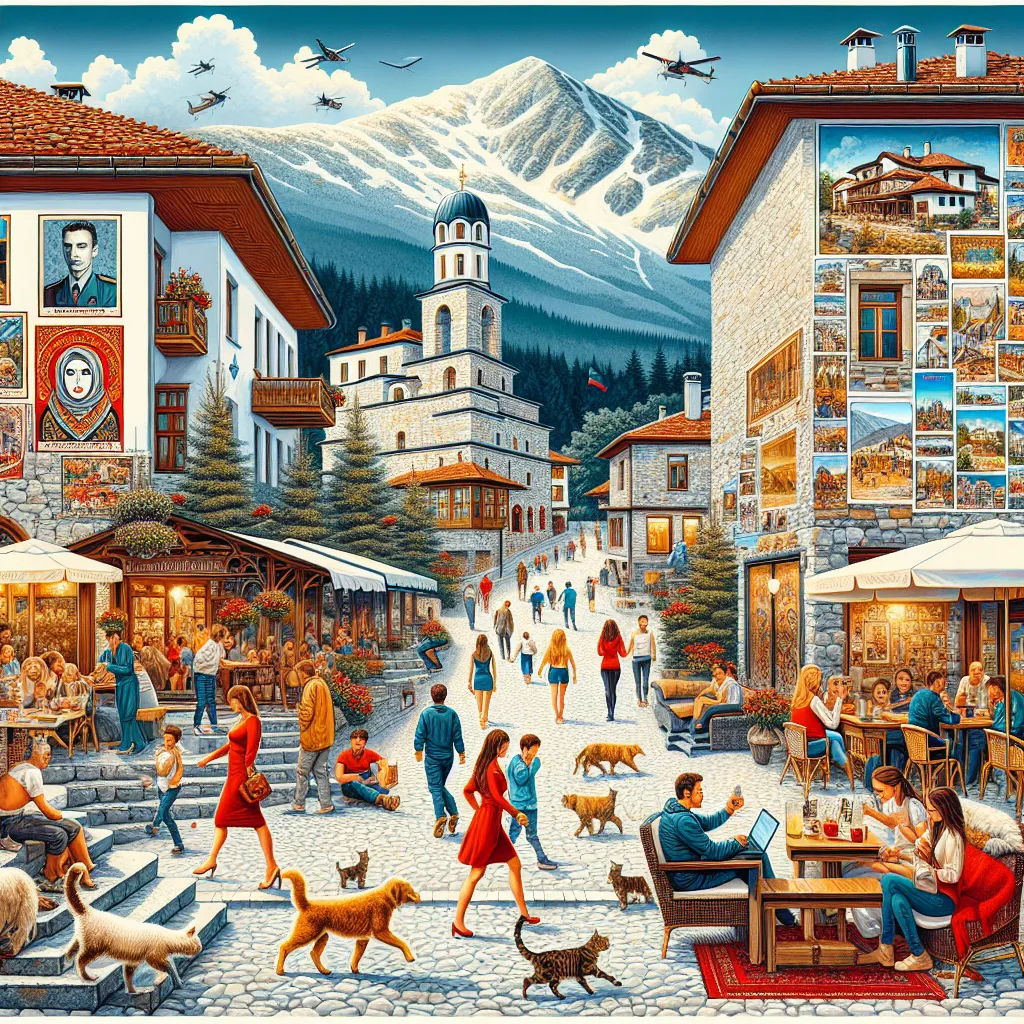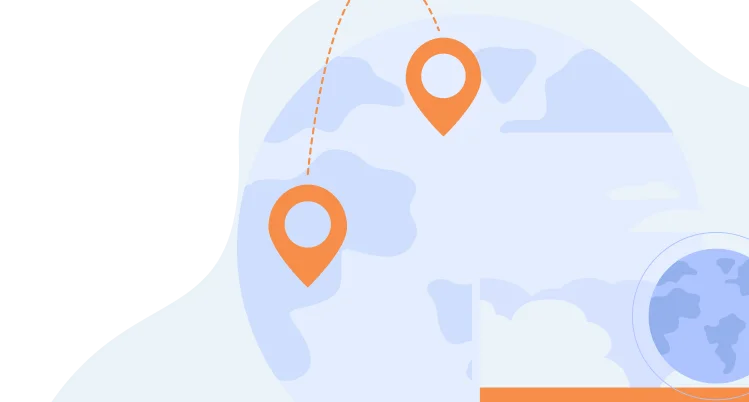Inside the paradise of digital nomads: How a Bulgarian city became a haven for remote workers

It all started because Matthias Zeitler had no one to play board games with. He was a digital nomad long before the term became mainstream, but he fits the profile perfectly: a programmer from Germany who, after launching his own business in 2009, said goodbye to nine-hour corporate life to travel the world, working from co-working spaces or any place with good Wi-Fi. Three years later, he started looking for a base with unlimited internet. His friend advised him to look into Bulgaria.
The decision to move to Bansko, a small town south of the capital Sofia, was extremely practical, as Zeitler explains. It is part of the European Union (EU), so it does not require a visa. Here' 'low cost of living and a Mediterranean climate, neither too hot in summer nor too cold in winter. But the main advantage was Bulgaria's 10 percent income tax, which is one of the lowest in the EU.
He quickly realized, however, that his life would become boring if there were no other digital nomads in town to befriend. At the time, digital nomadism was a niche phenomenon, available only to freelancers and entrepreneurs. But being one of them, Zeitler understood their needs and desires. Despite warnings from friends, he rented a small office and opened a co-working space in Bansko later that year. "Most people thought I was absolutely crazy," he says. - "Now, of course, it's become obvious to everyone in hindsight that it should' 'was to become a destination for digital nomads'." And so it has become. While there are no exact figures on how many nomads visit Bansko each year, Zeitler says his coworking space has about 100 paying members on a regular basis. And while Coworking Bansko was the first, there are now 10 coworking centers in town, owned by five companies. On a hot summer day, many of them were crowded with people silently working on their laptops in cool air-conditioned office spaces.
Bansko resembles a typical small town seen only on postcards. The peaks of Bulgaria's Pirin Mountains rise above old stone houses with tile roofs. The narrow cobblestone streets are dotted with traditional Bulgarian restaurants with benches hung with sheepskin and' 'red and green tapestries.



In winter, thousands of Europeans flock to Bansko, one of the most popular ski resorts in the Balkans. But in the summer months, the town subsides, attracting families from Sofia for weekend getaways and, increasingly, a huge number of remote workers. Tourism has always been vital to this small town, causing varying levels of discontent among locals. For' 'Some new circles of young people lugging laptops around town are indistinguishable from other tourists. "They're nothing special," says one local business owner with a shrug. Others find the activity bizarre. Who are these people? Why are they all here?
Ariel Fu, 31 years old traveled to a remote mountain town to attend the Bansko Nomad Fest. The festival, organized by Zeitler and a small band of volunteers, attracted nearly 700 digital nomads from over 40 countries this year, making it the largest conference of its kind. Fu is on the lookout for all the popular venues for digital nomads around the world. A year and a half ago, starting her "nomad journey," she visited many places: Barcelona, Chiang Mai, Madeira, Bali and'
'a sense of community in Toronto,' she says." Here in Bansko, she has a busy social calendar. There are morning hikes, meetings to share knowledge and skills, yoga classes, networking events and trips to nearby thermal springs. At Four Leaf Clover, a co-working space where she's staying for three months, she's surrounded by other digital nomads. It's a considerate choice; she wants to be at the center of things. She says she finds it much easier to make friends as a digital nomad, especially in a place filled with them like Bansko. "Even though I have to say goodbye to them many times, we will still cross paths so many times around the world," Fu says.
traveled to a remote mountain town to attend the Bansko Nomad Fest. The festival, organized by Zeitler and a small band of volunteers, attracted nearly 700 digital nomads from over 40 countries this year, making it the largest conference of its kind. Fu is on the lookout for all the popular venues for digital nomads around the world. A year and a half ago, starting her "nomad journey," she visited many places: Barcelona, Chiang Mai, Madeira, Bali and' 'a sense of community in Toronto,' she says." Here in Bansko, she has a busy social calendar. There are morning hikes, meetings to share knowledge and skills, yoga classes, networking events and trips to nearby thermal springs. At Four Leaf Clover, a co-working space where she's staying for three months, she's surrounded by other digital nomads. It's a considerate choice; she wants to be at the center of things. She says she finds it much easier to make friends as a digital nomad, especially in a place filled with them like Bansko. "Even though I have to say goodbye to them many times, we will still cross paths so many times around the world," Fu says.
Tags
We will find property in Spain for you
- 🔸 Reliable new buildings and ready-made apartments
- 🔸 Without commissions and intermediaries
- 🔸 Online display and remote transaction
Our managers will help you choose a property
Liliya
International Real Estate Consultant

Subscribe to the newsletter from Hatamatata.com!
Subscribe to the newsletter from Hatamatata.com!
Popular Posts
We will find property in Spain for you
- 🔸 Reliable new buildings and ready-made apartments
- 🔸 Without commissions and intermediaries
- 🔸 Online display and remote transaction
Our managers will help you choose a property
Liliya
International Real Estate Consultant

Subscribe to the newsletter from Hatamatata.com!
Subscribe to the newsletter from Hatamatata.com!
I agree to the processing of personal data and confidentiality rules of Hatamatata
Popular Offers


Need advice on your situation?
Get a free consultation on purchasing real estate overseas. We’ll discuss your goals, suggest the best strategies and countries, and explain how to complete the purchase step by step. You’ll get clear answers to all your questions about buying, investing, and relocating abroad.


Irina Nikolaeva
Sales Director, HataMatata




